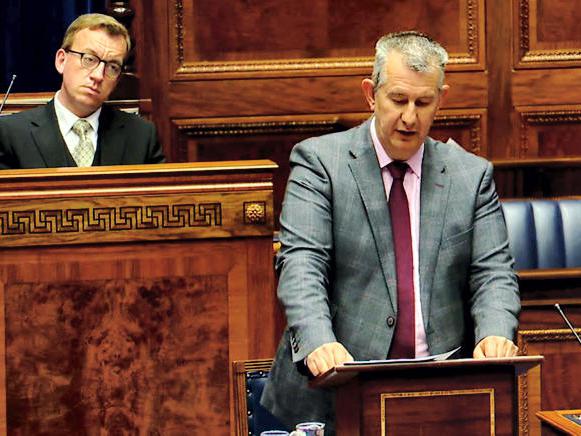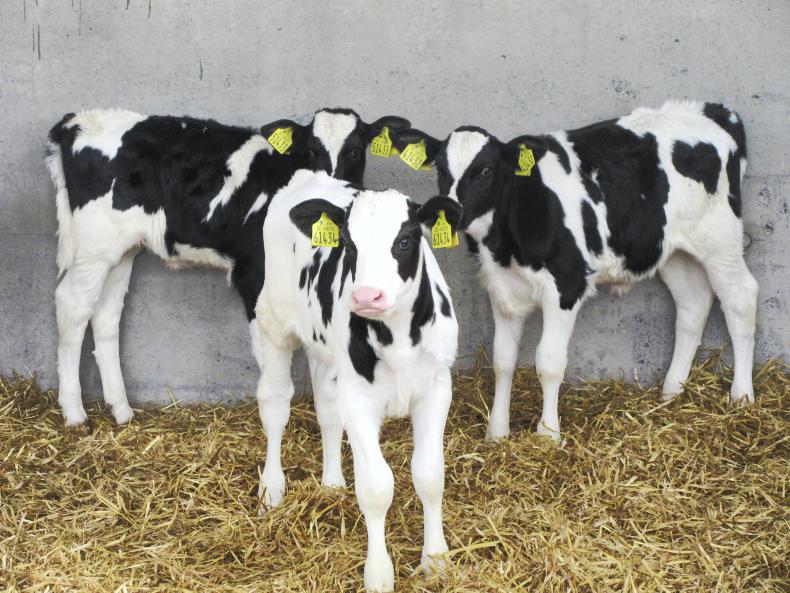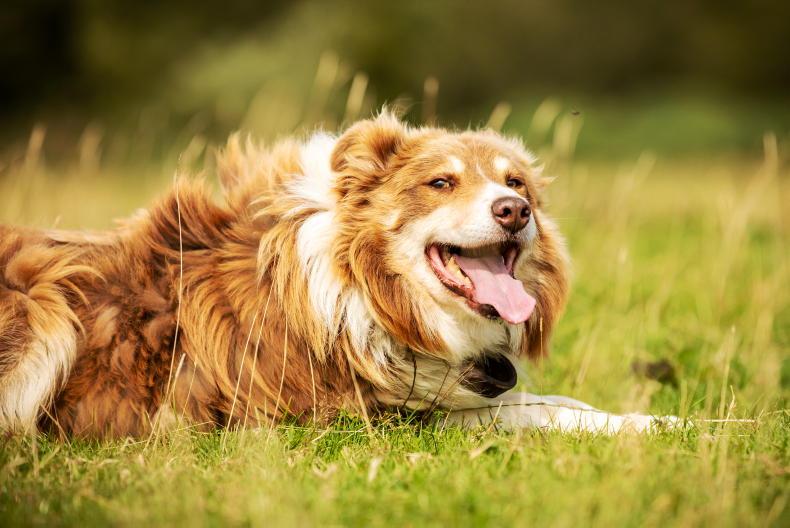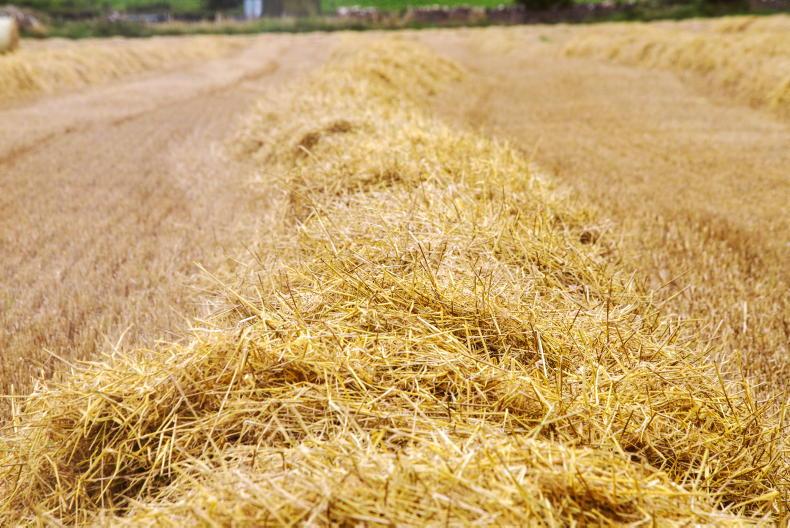Authorities in Northern Ireland (NI) will undertake the necessary checks to protect the EU’s single market, but goods coming into NI from Britain that are for sale solely north of the Irish border should face no trade friction, DUP Agriculture Minister, Edwin Poots, has suggested.
Setting out his position to MLAs on the Stormont Agriculture Committee last Thursday, Minister Poots called for all political parties to work together to find a workable solution to the protocol.
It was agreed by the UK and EU as a means of preventing trade friction across the Irish border, with NI staying in the EU’s single market for goods. With Britain outside the EU, it is treated as a third country.
Checks and controls on produce moving from Britain to NI are the same as those for Britain to the rest of the EU.
At the NI ports, officials from Minister Poots’ Department (DAERA) are responsible for sanitary and phytosanitary (SPS) controls (documentary, identity and physical checks) relating to plant and animal based products.
In recent weeks, DAERA officials have highlighted how they are being swamped by the number of checks required on goods arriving from Britain. More documentary checks are currently being done at NI ports than in any single country in the EU.
That’s approaching the same number of these checks that are done for the entire EU. That is not going to work
A grace period for retailers, allowing them to move plant and animal based products without the necessary EU health certificates, has been extended to 1 October 2021.
Once it does end, the relevant entry documents for these retail goods could increase from 1,350 per week to between 20,000 and 30,000, NI chief vet Robert Huey has estimated.
“That’s a huge challenge. That’s approaching the same number of these checks that are done for the entire EU. That is not going to work,” he told members of the Northern Ireland Assembly earlier this month.
Fundamentally, the EU external border is set up for the trade in large commodity products, not the movement of retail goods.
While the EU expected retailers to shift their supply chains to source from the EU, the practical reality is that large UK retailers are not going to do that to suit a handful of stores in NI.
Staff
Once grace periods end, Minister Poots estimates that up to 400 additional staff might be required at NI ports to undertake checks.
“A very high number of vets would be required. I’m not sure where we are going to get these vets because there is already a shortage in the UK,” he said.
We will co-operate with the EU in protecting their single market – that is not an issue
He maintained that rigorous implementation of the protocol would drive up costs for businesses and consumers, damage existing trading relationships and potentially undermine the NI peace process.
“We will co-operate with the EU in protecting their single market – that is not an issue. But what is being imposed on us goes way beyond protecting the single market,” the DUP minister claimed.
He accepted that the protocol does bring potential benefits, in that it allows NI businesses to trade freely into both the EU and UK market, but likened it to scoring a wonder goal in soccer, while still losing six-nil.
Read more
UK decision to delay vet certs a boost for Irish exports
The practical reality of the NI Protocol
DAERA tied up in red tape at NI ports
Authorities in Northern Ireland (NI) will undertake the necessary checks to protect the EU’s single market, but goods coming into NI from Britain that are for sale solely north of the Irish border should face no trade friction, DUP Agriculture Minister, Edwin Poots, has suggested.
Setting out his position to MLAs on the Stormont Agriculture Committee last Thursday, Minister Poots called for all political parties to work together to find a workable solution to the protocol.
It was agreed by the UK and EU as a means of preventing trade friction across the Irish border, with NI staying in the EU’s single market for goods. With Britain outside the EU, it is treated as a third country.
Checks and controls on produce moving from Britain to NI are the same as those for Britain to the rest of the EU.
At the NI ports, officials from Minister Poots’ Department (DAERA) are responsible for sanitary and phytosanitary (SPS) controls (documentary, identity and physical checks) relating to plant and animal based products.
In recent weeks, DAERA officials have highlighted how they are being swamped by the number of checks required on goods arriving from Britain. More documentary checks are currently being done at NI ports than in any single country in the EU.
That’s approaching the same number of these checks that are done for the entire EU. That is not going to work
A grace period for retailers, allowing them to move plant and animal based products without the necessary EU health certificates, has been extended to 1 October 2021.
Once it does end, the relevant entry documents for these retail goods could increase from 1,350 per week to between 20,000 and 30,000, NI chief vet Robert Huey has estimated.
“That’s a huge challenge. That’s approaching the same number of these checks that are done for the entire EU. That is not going to work,” he told members of the Northern Ireland Assembly earlier this month.
Fundamentally, the EU external border is set up for the trade in large commodity products, not the movement of retail goods.
While the EU expected retailers to shift their supply chains to source from the EU, the practical reality is that large UK retailers are not going to do that to suit a handful of stores in NI.
Staff
Once grace periods end, Minister Poots estimates that up to 400 additional staff might be required at NI ports to undertake checks.
“A very high number of vets would be required. I’m not sure where we are going to get these vets because there is already a shortage in the UK,” he said.
We will co-operate with the EU in protecting their single market – that is not an issue
He maintained that rigorous implementation of the protocol would drive up costs for businesses and consumers, damage existing trading relationships and potentially undermine the NI peace process.
“We will co-operate with the EU in protecting their single market – that is not an issue. But what is being imposed on us goes way beyond protecting the single market,” the DUP minister claimed.
He accepted that the protocol does bring potential benefits, in that it allows NI businesses to trade freely into both the EU and UK market, but likened it to scoring a wonder goal in soccer, while still losing six-nil.
Read more
UK decision to delay vet certs a boost for Irish exports
The practical reality of the NI Protocol
DAERA tied up in red tape at NI ports










SHARING OPTIONS